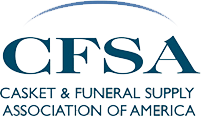From Funeral Service Insider (funeralserviceinsider.com):
After a few years of remaining stagnant or even going down, salaries for funeral professionals are starting to tick up – at least for those firms that participated in our annual compensation survey.
The 181 respondents report that salaries for owners, most experienced funeral directors and least-experienced funeral directors all went up in the range of 4 to 4.6 percent, depending on the position…
Many of those we spoke to credited the increase to a return to normalcy after tough times – and not solely because financial results were significantly better than in past years.
“I think a lot of firms were playing it very close to the vest when it came to raises and bonuses after the economic meltdown,” says Jake Johnson, president and CEO of Johnson Consulting Group in Scottsdale, Arizona. “I believe what this survey is illustrating is their feeling as to the economy returning to better times and a more optimistic owner. Chances are 2013 was also a good year for most operators as the mortality rates were extremely high compared to prior periods as well as 2014.”
Alan Creedy, a business strategist, agrees pay increases are “probably indicative of some makeup for low or no raise in previous years.” (Last year, respondents said salaries went down for owners and least-experienced funeral directors – the most-experienced funeral director category was the only one to show an increase in last year’s report.)
According to Creedy, “There are a few firms that are paying in excess of $100,000 for a truly competent licensee/general manager. Typically, a licensee with more than five years but fewer than 15 years of experience will make in the $50,000 to $60,000 range.”
Melissa A. Drake and Kathy D. Williams, co-owners of American Funeral Consultants in New Paltz, N.Y., note that it can be tremendously difficult to make generalizations about what certain positions in funeral service should earn. “In some firms, a less experienced funeral director may work less desirable hours, or more hours, than an experienced one, and this should be reflected in their pay,” they say. “The level of involvement and responsibility of each employee may also vary greatly from firm to firm, and even within the same firm, so it should not be assumed that all ‘less experienced’ staff members should receive the same compensation.”
As a guideline, Drake and Williams recommend that total salaries be kept to about 30 to 32 percent of sales. “This, as well as the average salary for funeral directors in each specific market area, the employee’s performance, and the specific roles and responsibilities of each person on staff should all be taken into consideration (when setting pay levels),” they say.
Drake and Williams hope that the increases across the board are an indication that firms are continuing to recover from the economic downturn. “Although funeral service overall has been facing decreasing revenues as cremation rates increase, many funeral homes have risen to the challenge by increasing per-call revenues through offering ancillary merchandise and additional services, and by emphasizing personalization and service to beat competitors and increase call volume,” they say. “These proactive responses may allow employers to give incremental raises on a more regular basis, thereby retaining valuable employees and increasing job satisfaction.”
Bonuses and Recognition
In addition to salaries going up, our respondents also had something else to cheer about: For those who work at firms that dole out bonuses (about 69 percent of respondents), they roughly doubled for both least-experienced and most-experienced funeral directors… Owners doled out higher bonuses to themselves, too – taking an average of 19 percent more than 2012.
Drake and Williams believe bonuses are a great way to reward employees – if and when cash flow allows. “While bonuses are often an incentive for performance, excellence and serve as motivation for helping the firm achieve its goals, they should not be expected or guaranteed but should rather serve as recognition and appreciation of a job well done,” they say. “When large bonuses are not possible, smaller incentives such as gift cards, smaller cash incentives or additional time off may help motivate some employees and can go a long way in boosting employee morale and showing appreciation…”
But not everyone is such a big fan of bonuses, including David Nixon, owner of Nixon Consulting in Chatham, Illinois, and a partner with Heartland Funeral Solutions in Springfield, Illinois. “I’m not averse to bonuses, but this is a caregiver business, and the more we rely on bonuses … it takes a level of transparency away,” he says, adding that what often motivates people more than money is simply recognizing their hard work.
Preneed Sales
Only 51 percent of respondents said that their preneed salesperson worked more than 30 hours per week. When asked how much a full-time preneed salesperson who meets expectations could expect to make on an annual basis, this is what respondents said:
$20,001 to $30,000 ………………….. 20.6%
$30,001 to $40,000 ………………….. 17.8%
$40,001 to $50,000 ………………….. 16.4%
$50,001 to $60,000 ………………….. 13.7%
$60,001 to $70,000 ………………….. 12.3%
$70,001 to $80,000 …………………… 5.5%
$80,001 to $90,000 …………………… 4.1%
More than $90,000 ……………………. 9.6%
Drake and Williams say that while the potential salaries for preneed salespeople appear to be low at first glance, they compare favorably to what last year’s survey found, and it’s unclear if some may receive commissions per sale or a bonus when they meet their quota. “Do they receive the same benefits as other employees?” they ask. “Such factors can greatly increase a salesperson’s total earnings, and the base salary alone may not give enough insight into their total compensation.”
Johnson notes he doesn’t think there is anything wrong with paying preneed salespeople on a commission-only basis. “The good preneed people will love it, and the program will thrive,” he says. “Unfortunately, finding these types of individuals is somewhat difficult. You may need to have some base salary just to get someone started and then monitor their success and the success of the program. You need to find someone with sales experience that understands the funeral process.”
Creedy, the former president of preneed marketing firm Trust 100, continues to believe that the funeral profession is largely “a magnet for mediocrity” when it comes to promoting preneed. He notes that when he was running Trust 100, no salesperson would make less than $35,000. “At that level, they were earning 5 percent of face plus benefits,” he says. “So they were selling between $450,000 to $600,000. A person earning over $50,000 was likely earning 6 percent, so he or she was selling more than $80,000. And we had people earning over $100,000 selling well in excess of $1 million. We provided a very good benefit package and straight commission – no salaries…”
Hours Worked
Drake and Williams say that despite the perception that owners can enjoy more flexibility by doling out duties to employees, the unfortunate reality is that they usually work more than full time. “We find that these demands are one of the primary reasons that at an earlier age, funeral home owners begin to consider retirement and start thinking about selling their business or passing the torch to a family member or longtime employee.”
Nixon adds that owners of smaller firms usually put in more than 52 hours per week, and that the number of hours worked certainly play a role in job satisfaction for owners and rank-and-file employees alike. “There seems to have been a discussion in the last year or two about trying to get families from getting away from having weekend services because of staffing issues and lifestyle/family issues,” Nixon says. “But right now, it’s a consumer-driven business, and if a family wants a service on the weekend, then I think you have to build your business around that…”

